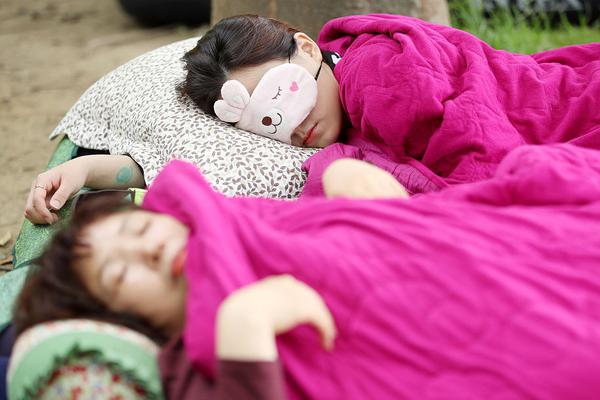Smartphones and hard sex videotablets work a lot like pacifiers: Hand one to a fussy toddler, and he'll quickly quiet down, mesmerized by the colors and shapes moving across the screen.
Pediatricians used to say those sweet bouts of screen-filled silence might ultimately do more harm than good in the long run.
But the American Academy of Pediatrics (AAP) has since softened its tone on children's digital media use, lessening the guilt-trip that many parents might feel as their toddler peacefully pokes at an iPad.
The national group last week unveiled a new set of guidelines that allow for certain types of media use by younger children and set broader parameters for older kids to keep them well-rested, physically active and socially engaged.
 Original image has been replaced. Credit: Mashable
Original image has been replaced. Credit: Mashable "The key is mindful use of media within a family," Dr. Megan Moreno, a principal investigator at Seattle Children’s Research Institute and co-author of AAP's policy statement, said in a press release.
"Parents can set expectations and boundaries to make sure their children's media experience is a positive one," she said.
The AAP's recommendations were published online Friday in the journal Pediatrics.The report also includes new "safe sleep" recommendations to protect against sleep-related infant deaths.
The new media guidelines replace the academy's earlier, more generic recommendation that children under age 2 avoid all screens, and that older children and teens use digital media for no more than one or two hours a day.
The academy in 2011 had warned that for children under 2, screens have "potentially negative effects and no known positive effects."
Now, the APP advises that children under 18 months see screens only in the form of video chatting. (Don't worry, grandmas and grandpas, you can still FaceTime incessantly.)
Children 18 months to 2 years old should be shown only "high-quality programming" such as Sesame Street and other PBS content. They should also only consume media together with an adult to help children understand what they are seeing.
 You rang? Credit: Getty Images
You rang? Credit: Getty Images Kids ages 2 to 5 should limit screen use to just an hour per day.
The pediatric group did not set concrete time limits for school-aged children. Instead, APP recommended that their media use not interference with adequate sleep or physical activity. APP also created an online tool to help families create a "family media use plan."
"Even though the media landscape is constantly changing, some of the same parenting rules apply," Dr. Yolanda Reid Chassiakos, lead author of AAP's technical report, said in a statement.
"Parents play an important role in helping children and teens navigate the media environment, just as they help them learn how to behave offline," she said.
The national pediatric group is also calling for infants to be kept in their parents' bedroom at night for six months to a year in order to decrease the risks of sleep-related deaths.
AAP said about 3,500 infants suffer sleep-related deaths every year in the U.S. due to sudden infant death syndrome, accidental suffocation and other rare events.
The new recommendations say babies should sleep in their parents' room on a separate surface, such as a crib or bassinet, but never on a soft surface like a couch or armchair.
 Original image has been replaced. Credit: Mashable
Original image has been replaced. Credit: Mashable AAP also recommends parents always place babies on their backs to sleep and avoid using crib bumpers, blankets, pillows and soft toys.
"We want to share this information in a way that doesn't scare parents but helps to explain the real risks posed by an unsafe sleep environment" Dr. Rachel Moon, lead author of AAP's safe sleep report, said in a statement.
"We know that we can keep a baby safer without spending a lot of money on home monitoring gadgets but through simple precautionary measures," she added.
Topics Family & Parenting
(Editor: {typename type="name"/})
 NYT Connections hints and answers for May 10: Tips to solve 'Connections' #699.
NYT Connections hints and answers for May 10: Tips to solve 'Connections' #699.
 Pew study: Nearly half of U.S. teens say they're online 'almost constantly'
Pew study: Nearly half of U.S. teens say they're online 'almost constantly'
 Chicago Bulls vs. Toronto Raptors 2024 livestream: Watch NBA online
Chicago Bulls vs. Toronto Raptors 2024 livestream: Watch NBA online
 Best free deal: Get one month of YouTube Premium for free through Best Buy
Best free deal: Get one month of YouTube Premium for free through Best Buy
 Bestway Hydro
Bestway Hydro
Best grocery deal: Spend $20 and get $5 off at Amazon
 SPEND $20, SAVE $5: As of April 9, spend $20 on select Amazon groceries and save $5.Opens in a new w
...[Details]
SPEND $20, SAVE $5: As of April 9, spend $20 on select Amazon groceries and save $5.Opens in a new w
...[Details]
Bears vs. Vikings 2024 livestream: How to watch NFL online
 TL;DR:Live stream Chicago Bears vs. Minnesota Vikings on YouTube TV or Sling TV.During NFL Week 15,
...[Details]
TL;DR:Live stream Chicago Bears vs. Minnesota Vikings on YouTube TV or Sling TV.During NFL Week 15,
...[Details]
NYT mini crossword answers for December 16
 The Mini is a bite-sized version of The New York Times' revered daily crossword. While the crossword
...[Details]
The Mini is a bite-sized version of The New York Times' revered daily crossword. While the crossword
...[Details]
Best laptop deals for December: Apple, Asus, Microsoft, and more
 Table of ContentsTable of ContentsUPDATE: Dec. 17, 2024, 4:00 a.m. EST This story has been updated w
...[Details]
Table of ContentsTable of ContentsUPDATE: Dec. 17, 2024, 4:00 a.m. EST This story has been updated w
...[Details]
NYT Connections Sports Edition hints and answers for May 18: Tips to solve Connections #237
 Connections: Sports Editionis a new version of the popular New York Times word game that seeks to te
...[Details]
Connections: Sports Editionis a new version of the popular New York Times word game that seeks to te
...[Details]
Neural DSP Quad Cortex plus freebies and Daaci Natural Drums lifetime license for under $2,000
 FREEBIES AND LIFETIME LICENCE DEAL: As of Dec. 17, the Neural DSP Quad Cortex is available for $1,69
...[Details]
FREEBIES AND LIFETIME LICENCE DEAL: As of Dec. 17, the Neural DSP Quad Cortex is available for $1,69
...[Details]
Best free online courses from University of Michigan
 TL;DR:A wide range of free online courses from the University of Michigan are available to take on e
...[Details]
TL;DR:A wide range of free online courses from the University of Michigan are available to take on e
...[Details]
How to unblock xHamster for free
 TL;DR:Unblock porn sites like xHamster with a VPN. The best service for unblocking porn sites is Exp
...[Details]
TL;DR:Unblock porn sites like xHamster with a VPN. The best service for unblocking porn sites is Exp
...[Details]
 Emmett Rensin ,May 2, 2017 Operation Mensc
...[Details]
Emmett Rensin ,May 2, 2017 Operation Mensc
...[Details]
Rules for blocking or going no contact after a breakup
 I was getting ready for a night out when I spotted a "hey girlie" text from an unknown number flash
...[Details]
I was getting ready for a night out when I spotted a "hey girlie" text from an unknown number flash
...[Details]
NYT Connections Sports Edition hints and answers for April 23: Tips to solve Connections #212

Best mesh WiFi deal: Save $105 on Amazon eero 6+ mesh WiFi router

接受PR>=1、BR>=1,流量相当,内容相关类链接。